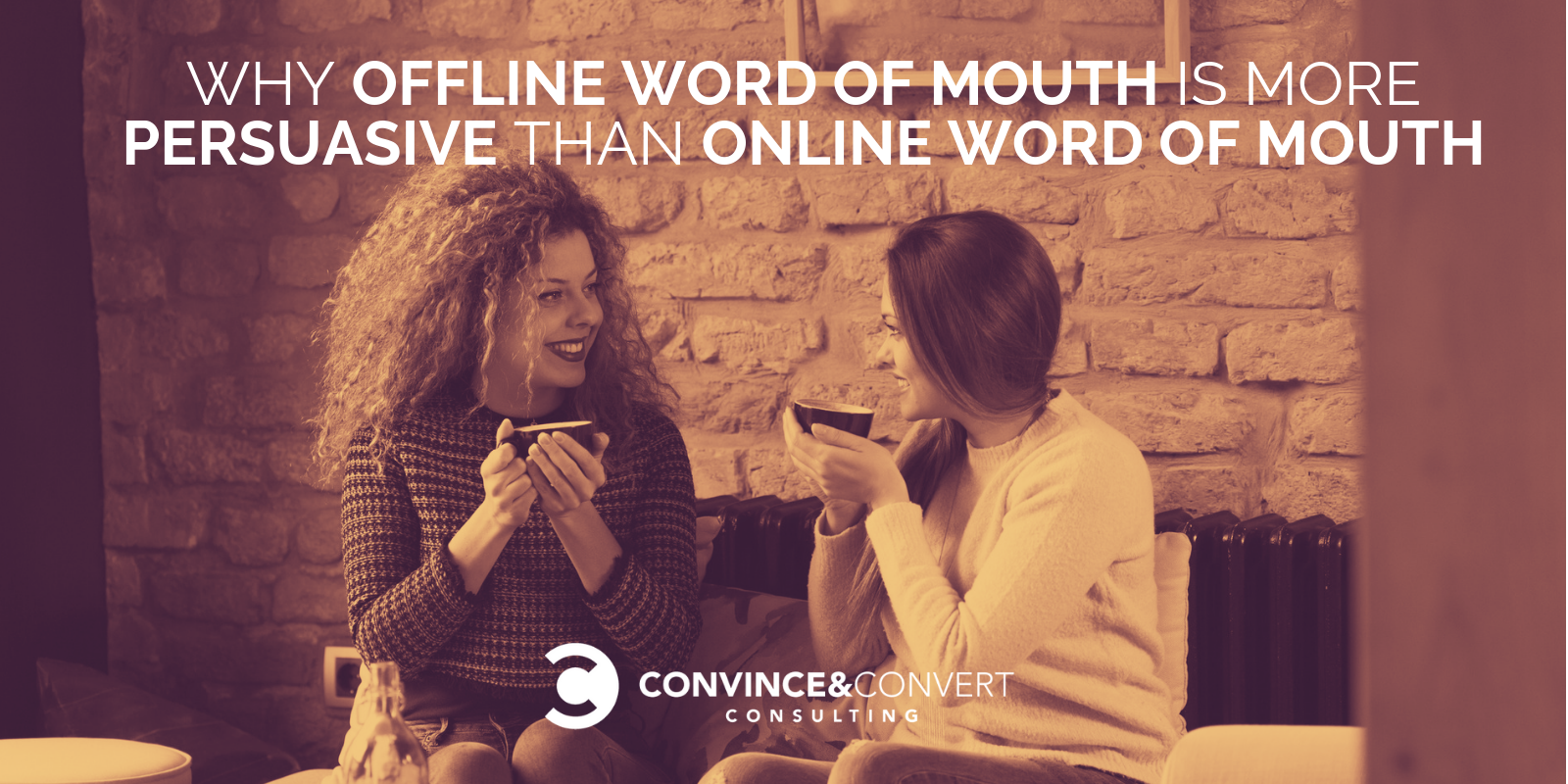
Americans value offline word of mouth recommendations 41% more than online word of mouth. #ChatterMatters
Click To Tweet
The number of the day today is 41.
41 is the name of a great Dave Matthews Band song. It is the atomic number of niobium. The longest and last symphony written by Mozart is Symphony No 41. And it’s the Guinness World Record for the most peopled crammed into a large car, achieved in 2015 in Krasnoyarsk, Russia. In case you are wondering, they crammed into a Toyota Rav4.
The number 41 is relevant to word of mouth marketing. Let me explain.
When it comes to getting recommendations on what to buy, we rely on both online word of mouth—like social media and review sites—and offline word of mouth—suggestions from our friends and family. When you compare online and offline word of mouth, the overall volume of conversation is similar, but offline word of mouth is more persuasive. According to our word of mouth report, Chatter Matters, Americans value offline word of mouth 41% more than online word of mouth.
There is a corner of the business world that believes social media IS word of mouth, or that social media has replaced word of mouth as the driver of consumer awareness and preference. I am here to tell you that it isn’t, and it hasn’t.
Corners of the business world believe social media IS word of mouth or has replaced word of mouth as the driver of consumer awareness. It isn’t. And it hasn’t. #ChatterMatters
Click To Tweet
Think about it.
In social media, everyone’s life is curated, like a museum of the mundane. Think of your friends that post videos of an amazing concert they went to, but don’t post anything when they attend a washed-up reunion rock band show at the local bowling alley. Our motivation to post on social media is, to some extent, anchored in a desire to show life’s wow factors
We are more authentic offline. We tell our friends about the washed-up rock band show. We also convey our real feelings about brands and experiences. That’s why offline word of mouth is more persuasive. We believe it’s genuine.
Word of Mouth Isn’t Magic
Word of mouth is equally popular among givers and receivers. It’s the motivating factor in the purchases of more than four out of five Americans. The same percentage have made a word of mouth recommendation to someone else.
But for some reason, marketers tend to believe word of mouth happens magically or needs to be prodded along with stunts. Rather than take a happenstance approach, we have a strategic word of mouth solution. It’s called a talk trigger. A talk trigger is not a stunt, it’s a conversation strategy. It’s doing word of mouth on purpose, instead of randomly. Here are the four key requirements of a talk trigger:
1. A Talk Trigger Must Be Remarkable
If it’s not worth remarking on, it’s not a talk trigger. Lower prices are not a talk trigger. You must stand out.
2. A Talk Trigger Must Be Relevant
Doing something just to get noticed isn’t necessarily a talk trigger. Changing the color of your packaging to lime green might be remarkable, but is it relevant in any way to your customers?
3. A Talk Trigger Must Be Reasonable
A talk trigger is a conversation catalyst but it is also reasonable enough to be trusted. When you overpromise—or when consumers perceive you to be overpromising—it depresses participation in your talk trigger and creates a longer-term spillover effect that diminishes brand trust in the future.
A talk trigger must be reasonable enough to be trusted. When you overpromise—or when consumers perceive you to be overpromising—it depresses participation in your talk trigger.
Click To Tweet
4. A Talk Trigger Must Be Repeatable
This one is easy. A talk trigger is available to every customer, every time. If it’s something that has terms, conditions, qualifying criteria or is reserved for influencers only, it’s not a talk trigger.
Get the most recent word of mouth data available to marketers and download the complete Chatter Matters report. Interested in creating a talk trigger for your business? Get my new book, Talk Triggers, which I co-authored with Daniel Lemin.
Chatter Matters is a proprietary word of mouth report produced by Convince & Convert Consulting and the research firm, Audience Audit. It examines the word of mouth attitudes of 1,001 randomly selected Americans. The margin of error is approximately +/- 3.1%. Chatter Matters is a companion piece to the new book, Talk Triggers: The Complete Guide to Creating Customers with Word-of-Mouth.
The post Why Offline Word of Mouth is More Persuasive than Online Word of Mouth appeared first on Convince and Convert: Social Media Consulting and Content Marketing Consulting.
source https://derekpackard.com/why-offline-word-of-mouth-is-more-persuasive-than-online-word-of-mouth/

No comments:
Post a Comment